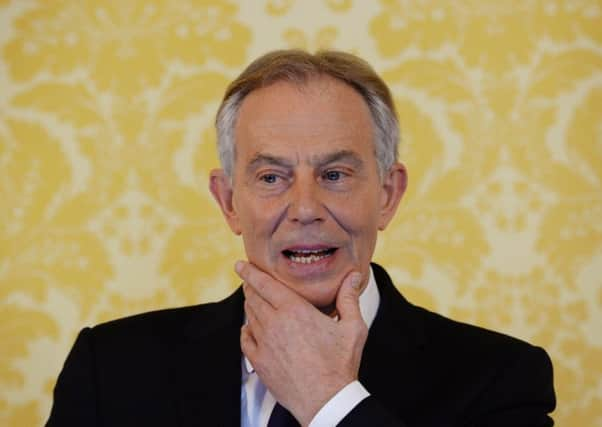Leader comment: Political shifts create a vacuum in the centre


It was the week the Conservative Party lurched violently to the right with a series of policy announcements on immigration seemingly designed to sow fear and unease among foreign workers.
But it was also a week where Jeremy Corbyn’s Labour retreated further to the periphery following a re-shuffle which sought to underline the party’s leftist credentials.
Advertisement
Hide AdAdvertisement
Hide AdOut went Rosie Winterton as chief whip, a moderate influence in the party who was seen as a bridge between Mr Corbyn’s party and the one he inherited from Ed Milliband.
Promoted were ex-Liberty director Shami Chakrabarti, who becomes shadow attorney general, and Diane Abbott, once a fringe figure in the party and now shadow home secretary.
After years where it was impossible to get a cigarette paper between the two parties on major issues, the electorate now has a genuine choice.
But what a choice it is - the failed policies of the past on the left or the increasingly reactionary right.
During the 1990s and 2000s it became increasingly fashionable to speak of a “democratic deficit” caused by a narrowing of the political spectrum as the two parties cosied up to the centre.
In these uncertain times, a new democratic deficit is emerging as both Labour and the Tories desert the middle ground, leaving millions of people with no onereally reflecting their views.
Of course the situation is very different in Scotland, where our party of government has expertly and opportunistically picked policies from across the political divide.
Amid a reawakening of radical politics elsewhere in these isles, the SNP have shown it is possible to occupy the centre and have mass appeal.
Advertisement
Hide AdAdvertisement
Hide AdFaced with an opposition in disarray, the Tories have gone to their safe place, instinctively tracking right as Labour move further and further left.
The party knows that as long as Mr Corbyn faces Theresa May across the Commons floor, Labour will remain in the political wilderness.
The Labour leader has energised a certain demographic, but his stewardship of the party has left millions of traditional Labour voters behind, millions who now feel disenfranchised with no one to vote for.
Questioned about Mr Corbyn’s rise in an interview published in Esquire magazine yesterday, Tony Blair spoke of a “tragedy” for a British political system now populated at the extremes. Many will consider Blair to be yesterday’s man, but by highlighting the gap in the political centre and the gains that are to be had from occupying it, he is correctly identifying where tomorrow’s political strategies will have to aim.